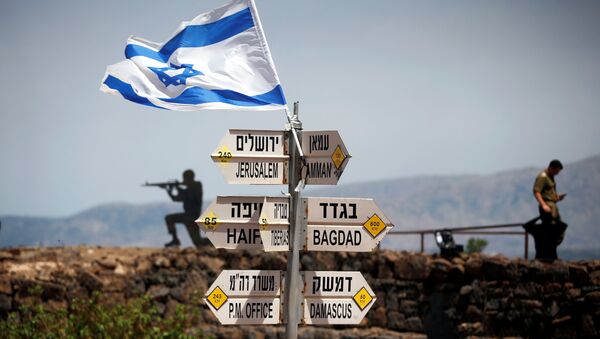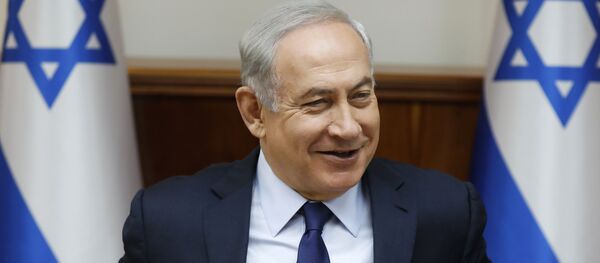Israeli Defense Minister Avigdor Lieberman is due to meet his Russian counterpart Sergei Shoigu in Moscow later on Thursday to address Iran's alleged increasing military presence in Syria, according to the Times of Israel.
Lieberman tweeted that "the primary focus of the defense establishment is preventing the entrenchment of Iran and its proxies in Syria."
יוצא כעת לביקור עבודה ברוסיה ומחר אפגש עם עמיתי, שר ההגנה סרגיי שויגו. המיקוד העיקרי של מערכת הביטחון היה ונותר מניעת התבססות של איראן וגרורותיה בסוריה. pic.twitter.com/qKo4gjNKEQ
— אביגדור ליברמן (@AvigdorLiberman) 30 мая 2018 г.
The Lieberman-Shoigu talks come after Israeli Prime Minister Benjamin Netanyahu's meeting with US Secretary of State Mike Pompeo, during which the two men specifically discussed a proposed US-Russian-Jordanian agreement on the deployment of forces in southern Syria.
READ MORE: Israel 'Must Destroy Any Trace of Iran in Syria, Put Genie in Bottle' – Minister
Netanyahu, for his part, reportedly insisted that the agreement should stipulate a total withdrawal of alleged Iranian forces from southern Syria.
Speaking at the Primakov Readings international think tank summit on Wednesday, Russian Foreign Minister Sergey Lavrov in turn pointed out that the pull-out of all non-Syrian troops from Syria's southwestern de-escalation zone should take place "as soon as possible."
"As regards the confrontation between Israel and Iran in Syria, we have agreements on the southwestern de-escalation zone, these agreements have been reached between Russia, the United States and Jordan. Israel was informed about them as we were working on them. They [agreements] stipulate that this de-escalation zone should consolidate stability, while all non-Syrian forces must be withdrawn from this area," Lavrov stressed.
Tensions between Israel and Iran have been running high recently, amid the reported exchange of air strikes between Tehran and Tel Aviv over the Israeli-controlled Golan Heights.
READ MORE: Israel Using 'Planned Provocations' to 'Get the US into a War With Iran'
Apart from the Iran nuclear deal, Israel has also expressed concern over Tehran's alleged attempts to establish a permanent military presence in Syria and thus expand its clout throughout the region, something which Tel Aviv sees as a threat to its national security.
Tehran denies the allegations, noting that it has been only sending military advisers to train troops loyal to Damascus since Iran supports Syrian President Bashar Assad in his struggle against terrorist groups in the country.
READ MORE: Israel-Iran Escalation Dangerous, Distracts From Anti-Daesh Fight — Moscow
The protests took place amid the 70th anniversary of the formation of Israel, as well as in the wake of the recent relocation of the US Embassy in Israel from Tel Aviv to Jerusalem.
According to the Israeli military, the protesters tossed improvised explosive devices and Molotov cocktails, burned tires and tried to break the border barriers, in what prodded Israeli soldiers to fire at them in response.




